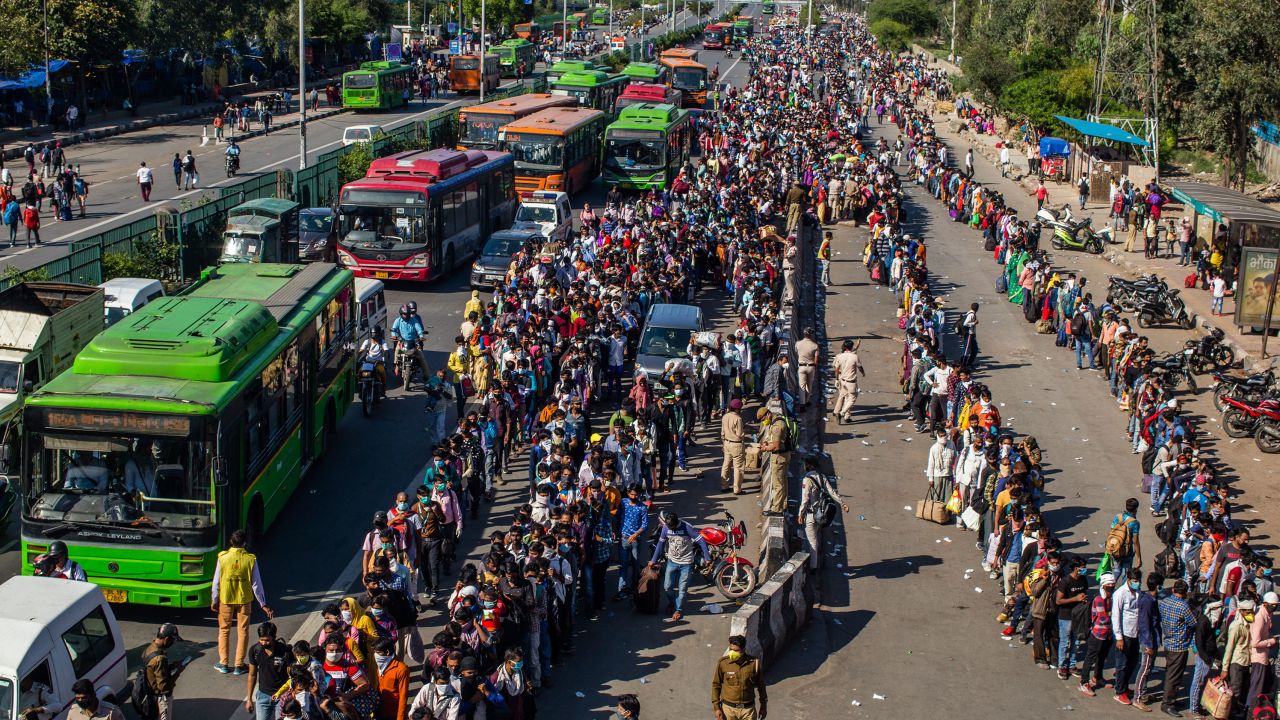The disruptions affected food supplies. For the first time in our lives, we faced empty grocery stores and buying bread was such a luxury

Five years ago, almost to the date, India was getting caught up in a lockdown. Some weeks later, Goa extended its own lockdown. How effective these lockdowns were, we shall never know. But a lot many situations got triggered off; supply chains broke down, people went hungry. It later emerged, that India had one of the most stringent lockdowns in the world.
Huge crowds of the migrant poor tried to walk back to their homes in distant parts of the country. The roads went silent, people got confined to their homes, and there were even cases of police beating up those who ventured out.
Politicians showed themselves to be strongmen (via lockdowns) or fools (with 'go corona, go' campaigns and the banging of pots and pans). To sound fatalistic, those who were destined to die, did die. Like the Swedes showed the world, with or without a lockdown, the overall impact of the pandemic was pretty much the same.
The alarm which greeted Covid-19 resulted in a huge panic all around. Does anyone remember the patient(s) who committed suicide just on being detected Covid-19 positive?
The media also needs to accept part of the responsibility for hyping up things. Reports of localities barricading themselves led to other copycat responses elsewhere. Suddenly 'outsiders' were not wanted anywhere.
This is how panic spreads. In our locality, a migrant who stayed up part of the night coughing was enough to set off alarm bells.
First for some facts: as noted, the Covid-19 lockdowns in India were among the most stringent in the world. On March 24, 2020, Prime Minister Narendra Modi announced a nationwide lockdown with just four hours' notice. This brought the country of some 1.4 billion people to a complete standstill.
This initial lockdown lasted for 21 days. But, it was extended multiple times, easing only after June 2020 onwards. During this period, most businesses, public transport, schools, and workplaces were shut; the only exception being essential services like hospitals and grocery stores.
The disruptions affected food supplies. For the first time in our lives, we faced empty grocery stores. To be able to buy some bread (there was no wheat supplies coming in) or some veggies being grown in the field, was such a luxury.
With this came a complete halt of economic and social activity. Police used force in many areas to ensure compliance, their heavy-handedness getting noticed. There was a severe impact on migrant workers. Restrictions on movement came about, with travel between states curbed and people needing special permits to move. Extended school closures came into place.
Today, when seen in hindsight, the benefits of the lockdown are debatable at best. Early, lengthy lockdowns in India meant that the country was too exhausted to take more measures when the pandemic actually peaked in mid-2021.
Benefits of the State action are, at best, debatable: did it really slow down the initial spread of the virus? To what effect? Did it really give time to prepare our health infrastructure? Some even claim that the lockdowns boosted India's digital adoption (online education, telemedicine and work-from-home); or that it brought in environmental benefits (cleaner cities and cleaner air) and encouraged local self-sufficiency.
But, this was hardly the intention of the lockdowns, when it came about. Besides, one has to take the economic devastation of the lockdown (India's GDP shrank by almost 24% in Q1 of 2020, leading to job losses, business closure, and financial distress for millions).
The humanitarian crisis for migrant workers -- some walking hundreds of kilometres back to their villages, amidst hunger, exhaustion and even death -- was one of the worst crises of recent times. It disrupted education, and caused healthcare neglect with non-Covid patients suffering, and brought on a mental health crisis. These were among the other bitter fruits of how the pandemic was tackled.
A debate over the benefits of mass vaccination has also not been undertaken. While I am not a vaccine-skeptic, the hurriedly implemented nature of these vaccines was something that was easily noticed.
Initially, the Covid vaccines were treated as if a magic shield. But then, even those who had taken the vaccine were found to be contracting Covid. Later, it was argued that those who had been vaccinated developed "less serious cases". Whoever will know?
There were a low number of Covid-19 cases and deaths when the March 2020 lockdown was declared. Maybe seven to ten deaths in all. Inspite of this relatively small number of detected cases (about 500 confirmed cases), the nationwide lockdown went ahead. Whether this really prevented things or not, is anyone's guess.
This impacted us so much, that we still think of life as 'before the pandemic' or 'after the pandemic'. In a way, this is an issue which our citizenry is also responsible for.
On the one hand, our policy planners and politicians take all the initiatives and decisions. They show confidence and bluster in doing what they do. But do they really know, or care?
In such conditions, the citizen's duty it is not to forget the issues that impacted his or her life. This needs to be taken up, remembered, and seriously analysed, if we are to address and deal with such serious issues.
Whether it is demonetisation (2017), GST implementation (2017), the handling of Covid-19 (2020-21), the economic slowdown and job crisis, the farm laws and repeal (2020-21), electoral bonds and political funding, the unsuccessful make-in-India, rising inequality and the wealth gap, and the debate on environmental and climate policies. We need to look back on all of these.